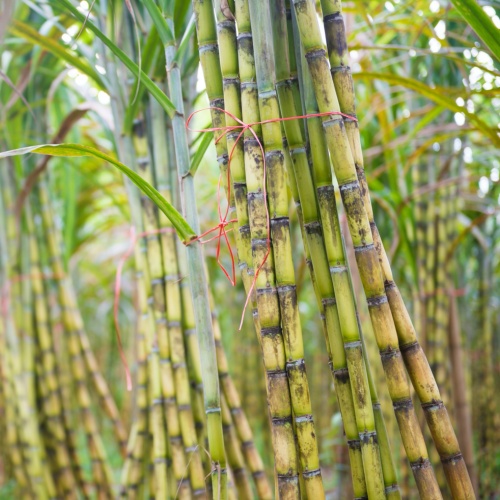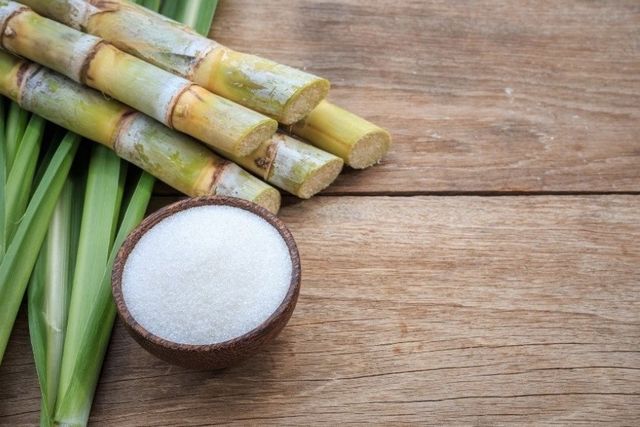Cane Sugar Processing: Ingenious Methods for High Quality Production
Cane Sugar Processing: Ingenious Methods for High Quality Production
Blog Article
A Comprehensive Introduction of the Health and Economic Implications of Cane Sugar Handling on Neighborhood Communities
Walking cane sugar processing plays an essential role in forming the financial landscape of local areas, supplying employment opportunities and stimulating secondary markets. The health ramifications linked with high sugar intake can not be neglected, as they contribute to rising rates of obesity and diabetes.
Economic Benefits of Cane Sugar Handling
Walking stick sugar processing offers considerable financial advantages that prolong beyond the prompt agricultural field. The cultivation and processing of sugarcane create numerous task opportunities, from farming to production and distribution. This work generation not just sustains regional economic situations yet also fosters community development by giving stable income sources for families.
Furthermore, the sugar industry boosts ancillary organizations, consisting of transport, devices supply, and product packaging services (Cane Sugar Processing). As these industries expand, they contribute to a much more robust financial framework, improving general neighborhood strength. The export potential of refined walking stick sugar additionally enhances financial advantages, positioning regions as affordable gamers in worldwide markets
Investment in modern processing centers can lead to enhanced productivity and effectiveness, thus reducing waste and optimizing resource use. This change not only benefits the local economic climate however also sustains sustainability efforts by reducing environmental impacts.
Moreover, the earnings created from cane sugar handling can be reinvested in neighborhood framework, education, and healthcare, promoting alternative community development. On the whole, the financial benefits of cane sugar processing are complex, providing a foundation for withstanding prosperity in farming regions.
Health Risks Connected With Sugar Consumption
Too much sugar usage postures significant health and wellness risks that warrant significant attention. High intake of included sugars, specifically from refined foods and beverages, has been linked to countless health and wellness complications.
Additionally, high sugar usage is linked with heart disease. Raised blood sugar levels can bring about insulin resistance, a precursor to numerous heart-related issues. Furthermore, sugar can have damaging impacts on dental health and wellness, resulting in tooth cavities and periodontal condition, as germs in the mouth grow on sugar, producing acids that erode tooth enamel.
In addition, arising study suggests a potential link in between high sugar consumption and psychological health conditions, such as anxiety and anxiety. As neighborhoods come to grips with these wellness threats, it ends up being vital to promote awareness and motivate much healthier dietary choices. Attending to sugar consumption is important not just for individual health and wellness but additionally for the general health of neighborhood communities, emphasizing the need for comprehensive public health and wellness approaches.
Environmental Influences of Sugar Production
Regularly ignored in conversations about sugar's implications is the considerable ecological impact of sugar manufacturing. The growing of sugarcane commonly necessitates substantial land usage, causing logging, loss of biodiversity, and interruption of local communities. The conversion of woodlands and wetlands right into sugar plantations can result in habitat damage, threatening many types and modifying eco-friendly equilibrium.
Moreover, sugar manufacturing is resource-intensive, consuming significant quantities of water for watering. This can bring about deficiency of regional water sources, detrimentally influencing both agricultural practices and area accessibility to clean water. In addition, the usage of chemical fertilizers and pesticides in sugarcane farming can add to soil degradation and water contamination, as runoff from these chemicals goes into close-by rivers and lakes, affecting water life and human health.
The ecological footprint reaches the processing stage, where energy intake and waste generation more intensify ecological problems. Air contamination from burning sugarcane areas, together with greenhouse gas emissions, contribute to environment adjustment. Thus, the ecological effects of sugar production warrant major factor to consider, prompting stakeholders to take on more sustainable techniques to alleviate these unfavorable effects on regional environments and communities.
Task Creation and Neighborhood Growth
The environmental difficulties posed by sugar manufacturing are usually counteracted by its possibility for economic benefits, specifically in work development and neighborhood development. The cane sugar sector acts as a significant resource of work in several backwoods, offering work throughout various skill degrees, from farming labor to handling and distribution roles. This work not only sustains specific households however additionally contributes to the overall economic vigor of neighborhood areas.
Additionally, the facility of sugar handling centers boosts ancillary companies, such as transportation services, devices supply, and upkeep companies. As these services grow, they try here create extra tasks and strengthen local economic climates. The profits created from the sugar industry also leads to increased tax obligation profits, which can be reinvested right into social work such as facilities, education, and healthcare advancement.
In addition, the sugar sector usually participates in neighborhood development initiatives, such as sustaining neighborhood institutions and health programs, thereby boosting the lifestyle for citizens. By promoting strong neighborhood connections and promoting financial growth, the walking cane sugar processing market plays an important duty in uplifting home local populaces, making it an important part of sustainable growth techniques in sugar-producing areas.
Balancing Wellness and Economic Growth
In browsing the complexities of walking cane sugar processing, an essential difficulty exists in balancing health and wellness considerations with economic development. The sugar industry substantially adds to regional economic climates by creating tasks, boosting relevant industries, and raising tax profits. However, the health and wellness implications linked with excessive sugar intake can cause chronic illness such as excessive weight, diabetic issues, and cardio issues, which can problem public health and wellness systems and decrease labor force productivity.

Additionally, governing frameworks can play an essential duty in assisting sector techniques towards more sustainable and health-conscious strategies. By cultivating cooperation between government bodies, health companies, and the sugar sector, areas can browse the duality of health and financial development, guaranteeing that the benefits of walking stick sugar processing are equitably shared while focusing on public wellness.
Verdict
In conclusion, the processing of walking cane sugar presents both significant economic benefits and notable wellness risks for local communities. While it cultivates task production and boosts local advancement, the connected health concerns, specifically regarding obesity and diabetes mellitus, necessitate a careful harmonizing act. By advertising accountable consumption and investing in community education and lasting methods, it is possible to make the most of economic benefits while minimizing damaging health and wellness impacts, consequently guaranteeing a healthier future for neighborhood populations.
Additionally, sugar can have destructive impacts over at this website on oral wellness, resulting in tooth cavities and gum condition, as germs in the mouth flourish on sugar, creating acids that deteriorate tooth enamel.
Attending to sugar consumption is critical not only for individual wellness but additionally for the general health of regional communities, stressing the demand for thorough public health and wellness techniques.
Often overlooked in conversations about sugar's effects is the substantial environmental influence of sugar production. The health and wellness implications linked with excessive sugar intake can lead to chronic illness such as obesity, diabetes mellitus, and cardio concerns, which can concern public wellness systems and diminish labor force productivity.

Report this page